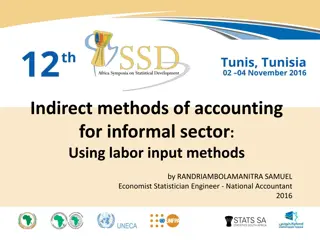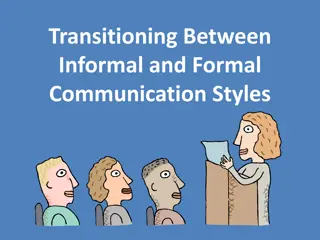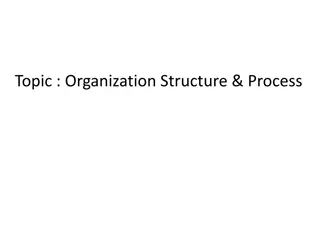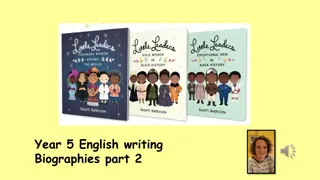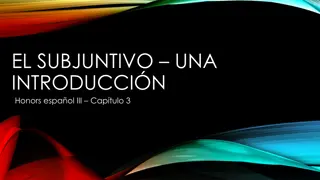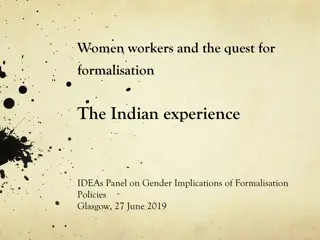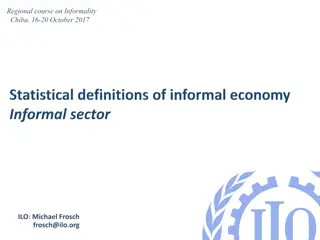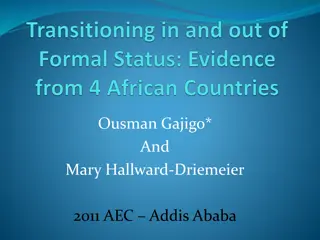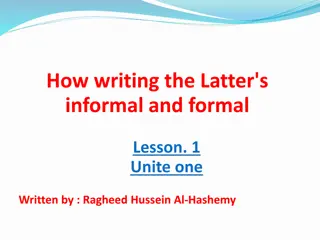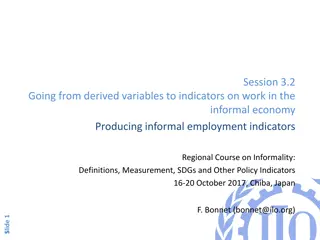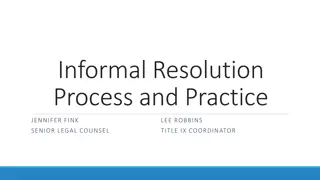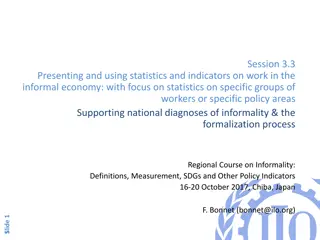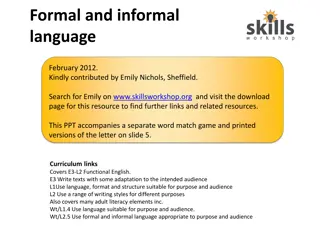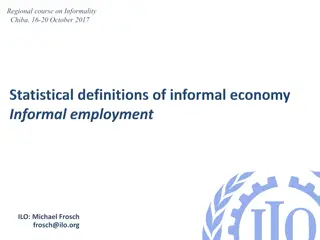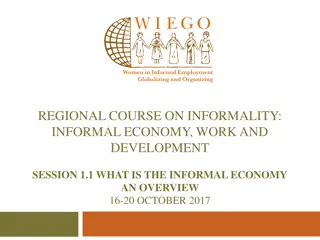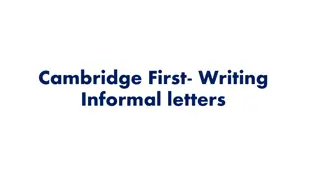Understanding Formal and Informal Language with Subjunctive Form
Explore the distinctions between formal and informal language, along with the appropriate usage of the subjunctive form. Learn how to enhance your writing by identifying key vocabulary and structures for formal speech and writing. Get insights on recognizing and utilizing formal language in various contexts, along with tips to elevate your writing style to a more formal tone.
Download Presentation

Please find below an Image/Link to download the presentation.
The content on the website is provided AS IS for your information and personal use only. It may not be sold, licensed, or shared on other websites without obtaining consent from the author. Download presentation by click this link. If you encounter any issues during the download, it is possible that the publisher has removed the file from their server.
E N D
Presentation Transcript
Year 6 SPAG formal and informal language and subjunctive form NCLO: Recognising vocabulary and structures that are appropriate for formal speech and writing including subjunctive form
Formal and informal language In different text types or genres you may be able to spot the difference between formal and informal language being used by the author. Formal writing uses more complicated words (as well as the Subjunctive Form) Informal writing sometimes uses question tags as well as contractions such as didn t and won t
Can you spot the difference between formal and informal language? http://www.bbc.co.uk/bitesize/ks3/english /writing/formal_informal/activity/
Tips to make your writing more formal Make your writing clear and to the point. Try linking ideas with: in addition, nevertheless, on the other hand, by contrast, although, alternatively. Include some complex sentences in your writing. Try using semi-colons if you feel confident about using them correctly. It's good to use figurative language if you think it fits in with the purpose and audience of the task. Metaphors and similes work well in speeches.
If you want to write in a formal tone try to avoid the following: Don't use 'Well' or 'You know' or 'Anyway' or 'Like I just said' or any phrase that sounds like you are having a friendly chat. Avoid using: 'And', 'But', 'Because' or 'So' at the beginning of a sentence. Keep exclamation marks to a minimum!!! Words like 'nice' and 'a lot' have no power. Try to think of more descriptive words eg 'delicious' or 'endless'. Clich s are colourful phrases that people use all the time in speech. So often, in fact, that they seem worn out and boring in writing. Avoid phrases such as 'pretty as a picture', 'big as a house', 'skinny as a rake'.
Subjunctive form Subjunctive form might be used in a formal text. When a sentence is talking about something important or urgent, it would use the subjunctive form. She must make sure she buys a cat. It is essential that she buy a cat.
The subjunctive form might also be used if you are talking about a situation that isn t real: If I was a good waiter, I d never drop anything. If I were a good waiter, I would never drop anything. Replace was with were to write in the subjunctive ..
Subjunctive form and tense The subjunctive form is always the same - it doesn t matter if the sentence is present or past tense. He asks that the people stay quiet He asked that the people stay quiet It is important that everyone be polite It was important that everyone be polite.
The difference between informal and subjunctive She must make sure she buys a cat. Informal It is essential that she buy a cat. Subjunctive It is important that we are quiet. Informal It is essential that we be quiet. Subjuntive


